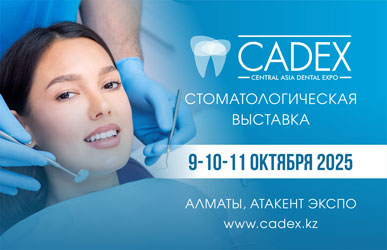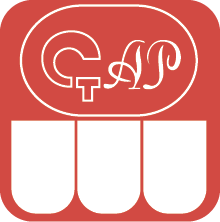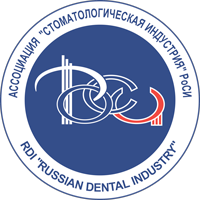DOI:
10.37988/1811-153X_2020_1_90Organizational aspects of temporary disability examination: A review
Downloads
Abstract
The reliable literature describes the state of examination of temporary disability (EVN) in a number of leading countries of the world, the development of EVN in Russia. In foreign capitalist countries, insurance companies deal with the assessment of temporary or permanent disability, which attract medical experts for examination. Social health insurance institutions have been established in a number of countries on the basis of laws on people’s insurance in case of disability. In Russia, the development of EHS as a branch of medical science and practice took place in stages, reflecting the periods of formation, formation and development of the social protection system. In the first years after the October revolution, the examination of working capacity was entrusted to medical control commissions, much attention was paid to medical and labor expertise. Currently, in accordance with the new legislative acts in medical practice introduced a new concept — «medical expertise», which, taking into account the diverse expert activities, the following types of expertise: EVN, medical and social expertise, military medical expertise, forensic and forensic psychiatric expertise and independent expertise. The regulatory legal framework of EVS has undergone major changes in recent years: a significant number of documents affecting the organizational issues of EVS have been developed. At the same time, the scientific literature poorly covers the issues of EVN in dental practice.
Key words:
disability, examination of temporary disability, temporary disabilityFor Citation
References
- Abdrashitova A.B., Saleev R.A. Analysis of disability in patients with diseases of the maxillofacial region. — In: scientific papers of the IX international youth competition “Youth in science: new arguments”. —Lipetsk: Argument, 2018: 130—132 (In Russ.).
- Abdrashitova A.B., Saleev R.A. Structure of cases of temporary disability in benign neoplasms of the maxillofacial region. — In: scientific papers dedicated to the 100th anniversary of the Republic of Bashkortostan “Historical milestones in the development of the dental service of the Republic of Bashkortostan”. — Ufa, 2019: 4—7 (In Russ.).
- Bashtovoy A.A. Temporary disability in dental diseases. — Economics and management in dentistry. — 2016; 49: 39—40 (In Russ.).
- Wagner V.D., Ivasenko P.I., Yatsina T.A. Examination of working capacity. — Omsk: OSMA, 1997: 229—230 (In Russ.).
- Wagner V.D. Clinical and expert work. — Moscow: Medical book, 2002: 360—361 (In Russ.).
- Wagner V.D., Martirosyan A.M., Bashtov A.A. Causes of temporary disability in dental diseases. — Dentistry. — 2016; 95 (6): 118—9 (In Russ.).
- Galikeyeva A.S., Vagner V.D., Larionova T.K. The relationship of dental morbidity, with some systematic risk factors. — Institute of dentistry. — 2016; 2 (71): 68—72 (In Russ.).
- Izmailova Z.M., Semkin V.A., Wagner V.D. Modern approaches to the examination during the operation of tooth extraction. — Clinical dentistry. — 2017; 2 (82): 40—4 (In Russ.).
- Lurie T.M. Medical and labor expertise in dentistry. — Moscow: Medicine, 1984: 144—145 (In Russ.).
- Martirosyan A.M., Wagner V.D., Bashtovoy A.A. Analysis of temporary disability of parents to care for sick children with dental diseases. — Dentistry. — 2016; 6: 127—32 (In Russ.).
- Nikolaeva E.V., Sarkisov K.A. History of RES development in Russia. — Quality of medical care. — 2001; 3: 5—33 (In Russ.).
- Kutsenko G.I., Vyalkov A.I. (eds.) Public health and healthcare: guide for students. — Moscow: Meditsina, 2003: 495—496 (In Russ.).
- Saleev R.A., Goryachev N.A., Goryachev D.N., Pavlov R.E. Features of the examination of temporary disability in dental practice. — Endodontic Today. — 2017; 3: 58—62 (In Russ.).
- Smirnova L.E., Bochkovskaya E.O. Examination of the quality of dental orthopedic care. — Clinical dentistry. — 2017; 3 (83): 72—7 (In Russ.).
- Strandstrom E.B., Smirnova L.E., Wagner V.D., Lapina A.K. Legislative and regulatory legal support for quality control and safety of medical activities and quality of medical care. — Clinical dentistry. — 2016; 4 (80): 73—7 (In Russ.).
- Chavpetsov V.F. Examination of the quality of medical care. Theory and practice. — St. Petersburg: Progress-pogoda, 1997: 320—321 (In Russ.).
- Shchepin V.O. Morbidity with temporary disability of the population of the Russian Federation. — Problems of social hygiene, health care and history of medicine. — 2012; 4: 6—9 (In Russ.).
- Crosby P.B. Completeness: quality for the 21st century. — NY: Dutton, 1992: 51.
- Donabedian A. The criteria and standards of quality. Explorations in quality assessment and monitoring. Vol. 2. — Health Administration Press, 1982: 135.
- in German.












